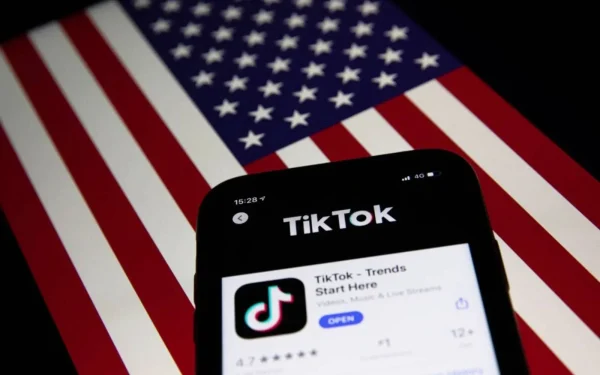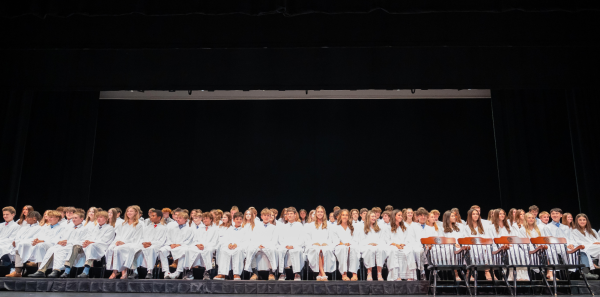No Business at School
The Middle School administration is disturbed at how much money students have been making by selling items on campus.
Before school, most students use their time to get their books and binder organized, catch up with friends, finish up homework from the night before, or buy some of that homemade slime everyone is talking about.
Okay, as weird as that last part sounds, it’s true. For the past year, students have been using school time to offer their services (doing homework for up to $50 an assignment) and selling items out of their lockers (everything from slime to fidget spinners to sneakers) to make money.
This brings up two serious issues: first, the students who are paying others to do their homework, and those students who are getting paid to do so, are both violating the School’s Honor Code. The Honor Code, which every student must write on their assignments, states, “I shall not lie, cheat, or steal, nor tolerate anyone who does.” Paying someone to do your homework, or collecting money to do another person’s homework, is definitely cheating and lying – big time, and it’s an offense that carries serious consequences “First time [would be] a suspension because of an Honor Code violation, second time would be probably an expulsion,” said Dean of Students Mr. Jeffrey Cavallo.
Second, students who are selling and purchasing items are turning a place of learning into a place of commerce, which is a trend the administration wants to end immediately. “Selling [items] is not for school because students need to focus on their school work, and not about making money,” said Cavallo.
According to students, this Benjamin “black market” has been going on for at least a year. However, with more and more students becoming entrepreneurs, the administration finally took notice this year. For most of September, a warning was given to students via The Neersyde’s daily announcements which stated that students are prohibited from selling any and all items on campus.
For these sellers, Benjamin’s campus is a great marketplace because “the school is filled with many potential customers,” said Cavallo. However, Cavallo also cautioned about the dangers of bringing large amounts of cash to school because it could be misplaced or stolen. In addition, students who consistently sell items face a stiff penalty. “First time – a green slip, second time – Saturday detention, after it will be suspension, and then expulsion,” said Cavallo.
How much money are we talking here, though? “I have made anywhere from $100 from one order to $500 on another order,” said student #1, who wished to remain anonymous. “It all depends on if kids can’t get the item anywhere else, like if a retailer is sold out.”
Some students seem to enjoy seeing how much money they can make. “I would like to keep making this money, so I put it back in the business,” said student #1. “I have been doing this for over a year now, and it is really easy to not get caught, but I don’t want to disclose the [details].”
Part of the reason so many students sell items at school is because of the vast amounts of cash they can make in a short amount of time. “Students at this school will buy anything and bring thousands of dollars to school,” said student #2. Student #2 has sold fidget spinners, sneakers, wigs, fake toes, and fake teeth “so students can prank their parents,” he said. Other students have resold items such as hoodies, t-shirts, socks, pants, candy, and even bagels they bought from the Buc Café.
However, there are some students who buy multiple bagels to sustain themselves throughout the day. “I usually get two or three bacon, egg, and cheese bagels for snack and lunch,” said eighth grader Cameron Salehi. As a result, according to Student Council Advisor Mrs. Anne Franzen, she and the Student Council feel that it’s not fair to limit students to just one bagel, especially since the purchase of those bagels raises money for the Middle School.
Franzen, though, who also teaches eighth-grade history, has seen first-hand just how far students will go to sell items. Franzen noticed some of her students would be logged onto the Supreme New York website (supremenewyork.com) during class time. Supreme, a streetwear brand that was started in 1994, is very popular in today’s fashion world. Fashion influencers like RiceGum, ASAP Rocky, Jerry Lorenzo, and Jacob Starr have been rocking this brand lately. As a result, it’s very popular among today’s affluent teens. Students would visit the Supreme site at 11:00 a.m. – which is when Supreme releases their latest clothing and accessories such as their famous box logo hoodies, hats, and shoes – purchase items, and then bring the items to school to sell them to other students for a profit.
Franzen quickly realized what was going on and put an end to it. “I will not let students on their computers at 11:00 [ a.m. anymore],” said Franzen.”
The secret is out, and the administration is clearly serious about putting an end to the TBS “black market.” The last thing the Middle School wants or needs are parents complaining about their child getting scammed out of hundreds of dollars over a pair of sneakers. It also doesn’t want this illicit trade to spiral out of control and overshadow the one thing that’s supposed to take place on campus: learning. The old saying is “never mix business with pleasure.” Well, at TBS, the line has been drawn and the message is clear: never mix business with school – it will cost you.










tbslover • Dec 17, 2018 at 2:32 pm
what a great article. James is a great writer, and so is Spencer. I hope to see more from this collaboration. Great, great work from these men. Mr. Crisafi, their teacher was a great one, and lead them to success in this article. great.
GO BUCS
johnny j • Nov 28, 2017 at 10:07 am
love it joe
Joey • Oct 3, 2017 at 8:27 am
Amazing job
rhonda childs • Oct 2, 2017 at 9:24 pm
This is an excellent discussion of a behavior that could potentially harm the school’s reputation as well as harm children at the school. You developed the issue well and sourced your information. I would like to follow this issue with you and see how the school and student body respond to your exposure of it here.
Excellent writing. Thank you for sharing.